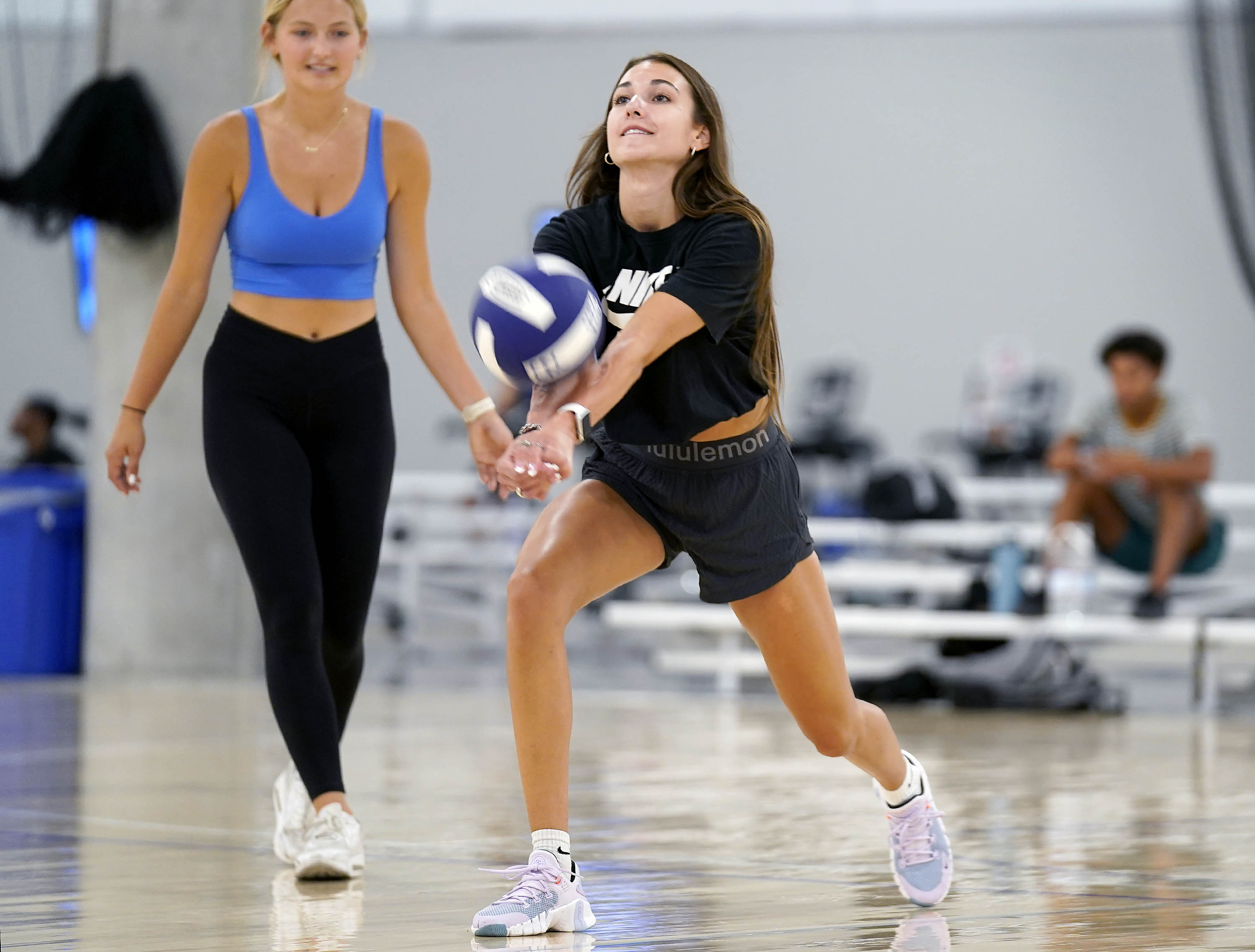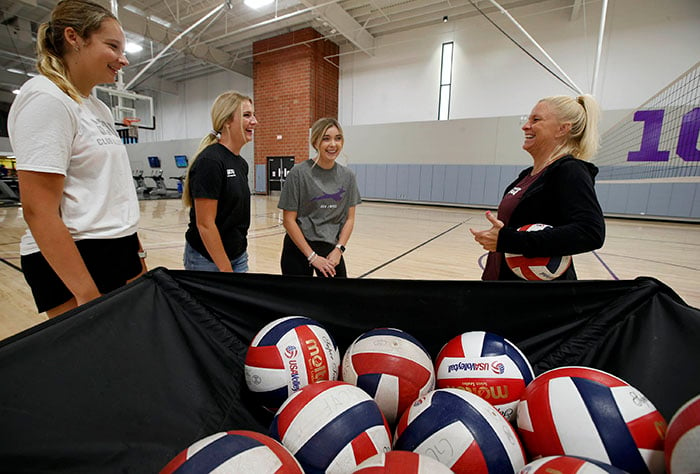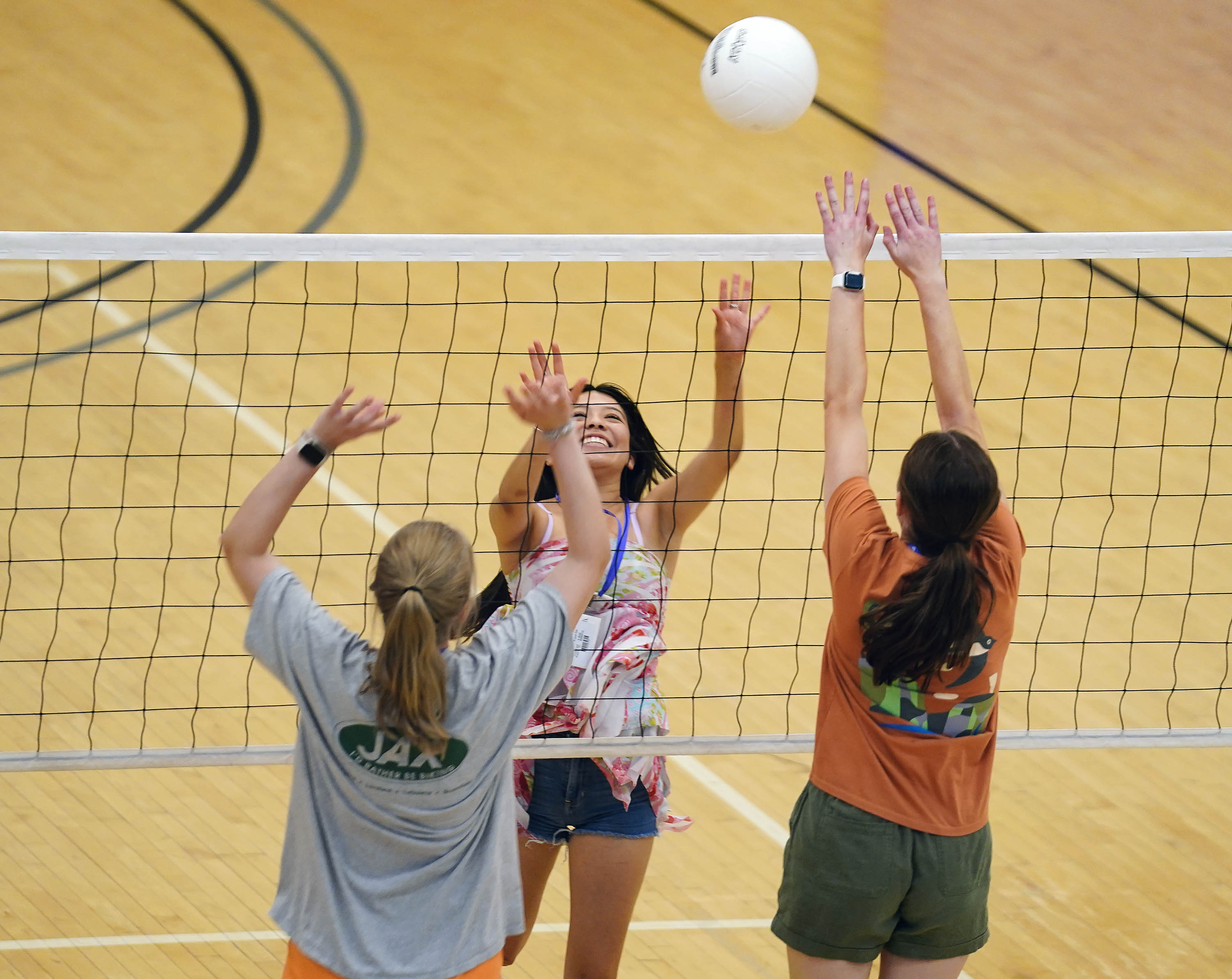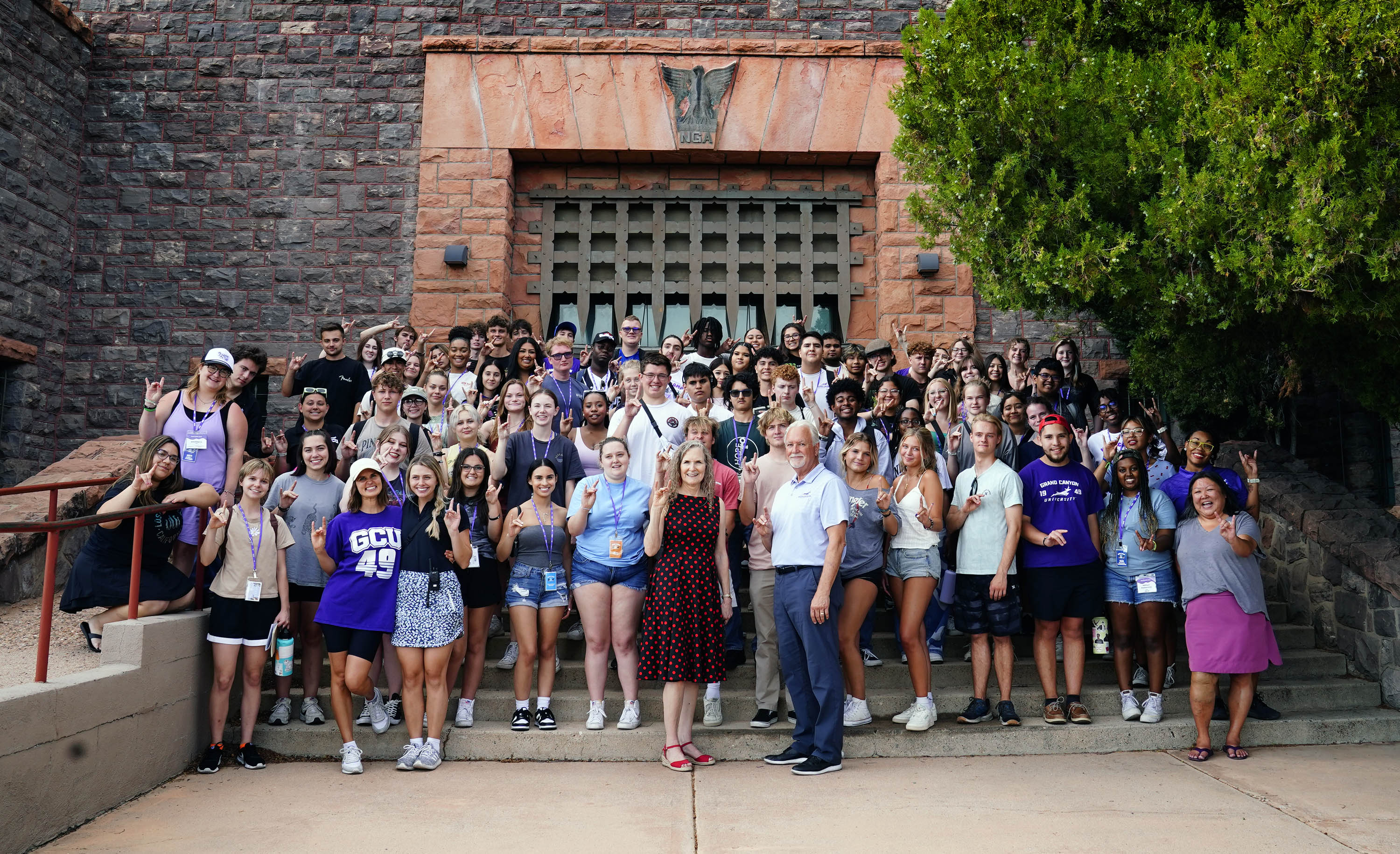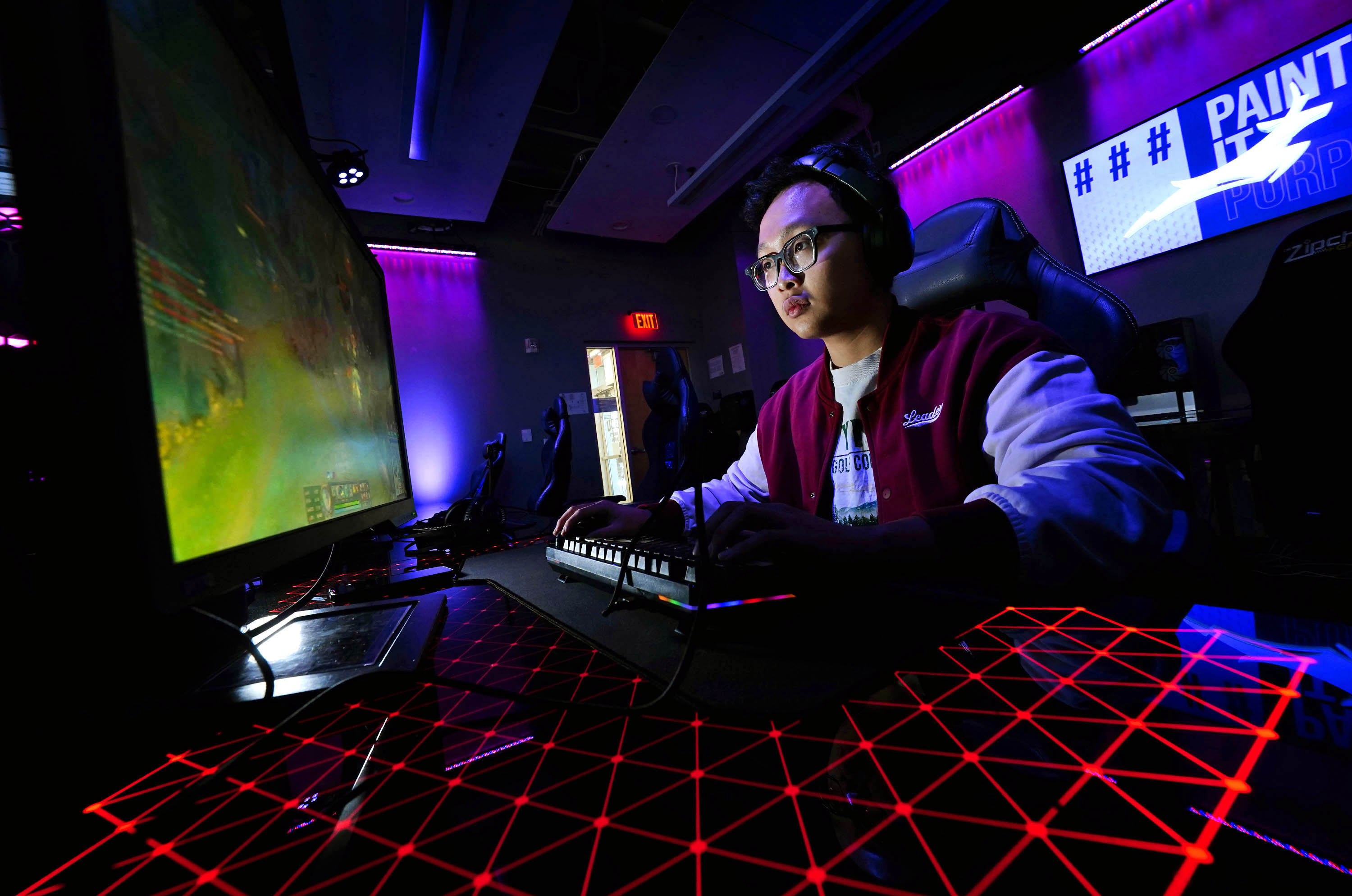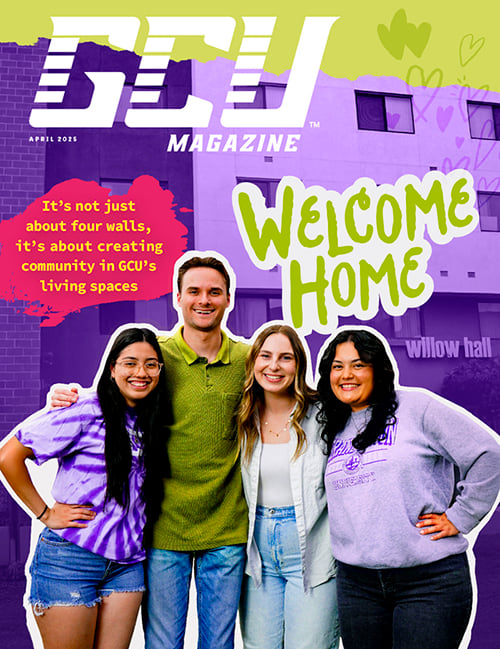Editor's note: This story is reprinted from the February issue of GCU Magazine, an inside look at the unprecedented growth of the University in the last decade. To read the digital version of the magazine, click here.
By Lana Sweeten-Shults
GCU Magazine
Not long after Dr. Tim Griffin arrived on the Grand Canyon University campus in 2010 as its new pastor, he saw something that flabbergasted him.
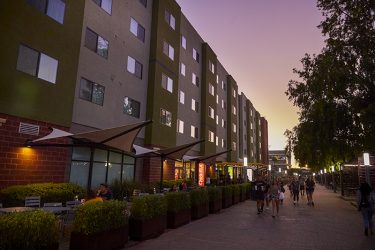
A student hopped into his car at North Rim Apartments and drove to a classroom where the Engineering Building now stands. Griffin estimated that it was only a six-minute walk from any point on campus to the front office.
“Students need to be walking, talking, getting to know each other, developing relationships,” he thought. “How do we create spaces that really encourage being together?”
It would become the first step toward building a vibrant campus life.
“We were just a small campus. But it had a community feel that was really important, that was kind of a cornerstone to our growth years,” said Griffin, who was named Dean of Students after his arrival. “We had a dominant population whose students were engaged and they knew each other, coming from Christian backgrounds, by and large. There was a sense of community, a sense that it was easier to be known.”
Although the University was small, the students’ values of loving and caring for their neighbor would be what would shape those growth years, he said.
Growing the community
Ten years ago, campus life differed vastly from what it is today.
At the beginning of 2010, GCU touted a little more than 3,100 students, including master’s cohorts who came to campus in the evenings. Almost 1,000 students lived in the two residence facilities – North Rim Apartments and Hegel Hall (now Cypress Hall).
Students ate at their one dining option, the Student Union cafeteria, and they could park in front of Kaibab or North Rim (in the days before parking garages).
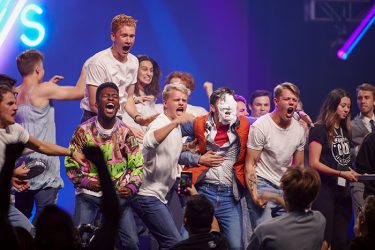
Director of Residence Life Matt Hopkins recalls that Move-In lasted one or two days compared to what it is now, a machine of hundreds of hyped-up students in a weeklong melee of cheering and dancing and welcoming throngs of new students.
Fast forward to today. The campus has approximately 22,000 ground students, close to 13,000 of them living in 21 residence halls and apartments that have been ranked among the top 10 in the country by niche.com.
Students can dine in or pick up food at 32 campus locations, from Taco Bell in Thunder Alley to Chick-fil-A, Panda Express and more on Lopes Way, a restaurant row that dramatically changed campus life when it opened in 2015, four years after Thunder Alley.
Like Griffin, Hopkins said Residence Life has been keenly aware of the importance of building that sense of togetherness, beginning with campus life in the residence halls.
“We’ve had to keep the smaller events in place, because that’s where students connect with other students. We can’t just plan on an event for 5,000 people and expect people to develop this sense of community,” Hopkins said. “So there still has to be the emphasis on how do we help relationships develop in the rooms, how do we help develop the relationships on the floor?”
How GCU has done that, Hopkins said, is by cultivating student leaders and looking to resident assistants, resident directors and life leaders to engender the University’s values.
The number of student leaders on campus has grown from fewer than 100 in 2010 to about 1,000 today.
“The one thing we’ve continued to push on as a staff and within our student leaders is this idea of students caring for each other. It doesn’t matter what the size of the University is,” Hopkins said. “At the end of the day, if we have students who care for each other, if we have staff that set that example, students feel that.”
GCU President Brian Mueller said, “They’re creating community in every single residence hall and on campus. That’s what makes this thing so vibrant.”
Then he shared a story of two recent graduates who want to create homes for 18-year-old males transitioning out of the foster care system:
“They said, ‘Our experience here as students was something we’d never experienced before. On our floor, we had a life leader, a resident leader and we became part of a community – a family – on that floor.’” It’s an experience they want to re-create in those transition homes.
Director of Student Engagement Jeremy Mack remembers his first campus tour in 2008: “I was like, where are all the students? It’s 2 o’clock in the afternoon and there was nobody walking around on campus.”
Students didn’t stick around, which is much different from the atmosphere now, where “students almost feel a sense of, if I leave, I’m missing out,” Mack said.
Not that campus activities didn’t exist. The Associated Students of GCU planned events, and RAs and RDs organized residence hall events. But beyond the big signature events that have been around for years (Mr. GCU, Lip Sync, the Hanging of the Greens), many of the activities that were here just didn’t resonate.
In 2013, GCU reorganized the Student Life Department, renaming it Student Affairs and adding a new Office of Student Engagement to, as Mack puts it, “inspire activity.”
“I know that culture piece was probably missing, at least from what it is today, and I don’t think any of us really understood what it would become,” he said.
These days, with the addition of the student-run Canyon Activities Board, there’s plenty to do. Mack estimates that on average there are 1½ events a day during the academic year.
Growing the spirit
Pondering how to increase student engagement extended to other leaders on campus who, around the same time, wondered how they could boost attendance at basketball games and fuel the vibrant campus life University leaders wanted.
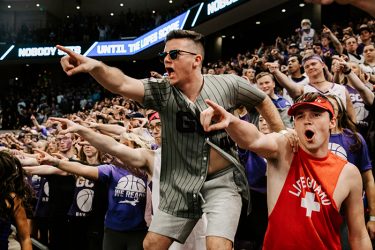
“We weren’t filling out that South Gym,” Director of Spirit Programs and Cheer coach Emily Stephens said of the games, which were played in Antelope Gymnasium before GCU Arena debuted in 2011. “It was pretty quiet.”
In 2008, Stephens met with then Athletic Director Keith Baker to pitch the idea of starting a cheerleading program. Though cheerleading teams had existed before, they would come and go.
“I looked at him and said, ‘I swear to you that I will get through a season. We’re not going to bail on you.’”
Once the cheerleading program started, the University looked to add more.
Mueller asked Stephens to meet with Director of Bands Dr. Paul Koch after his arrival in 2012. They talked for five hours at a Barnes and Noble, discussing their experiences at other universities and what they could build at GCU.
At the time, GCU hired musicians to perform at campus events and had tried several times to get a band up and running, Koch said.
He was determined that this time would be different. He found 52 students who wanted to rekindle their high school band skills that first year; this year, the Thundering Heard Pep Band touts 116 members.
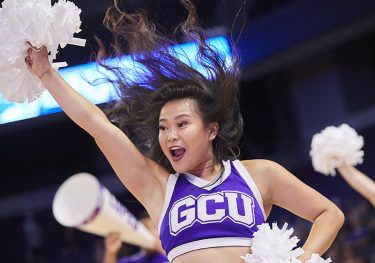
Koch’s wife, Jacque Genung-Koch, was brought on board to lead the Dance team, and she has transformed that group, Stephens said.
The next step was reimagining the University’s mascot, Thunder. “When I first started, we didn’t have a mascot, really,” Stephens said.
The original Thunder was shorter and less athletic, and there wasn’t a lot of consistency, Stephens said, to the Thunder character. Former Director of In-Game Entertainment Taylor Griffin (Tim’s son) worked for the Phoenix Suns and was inspired by the qualities of the Suns’ mascot, The Gorilla. He incorporated those same qualities into the new Thunder, who became sleeker and more physically imposing.
And then the Havocs happened.
“It was probably around 2010 and we were getting a little bit more hype around the games,” Stephens said. “We were creating more buzz and really making more of an event.”
With GCU Arena in the works, the push was on to fill the bigger space. GCU student Dan Ballenger suggested creating a student section.
Stephens remembers visiting with the student section at Gonzaga University: “The No. 1 suggestion they had was it needs to be led by student leaders.”
The student section, originally called the Black Hole, eventually took on the name Monsoons, and the Spirit team set out to recruit the first Havocs leaders. “We had three people show up – but it was three people,” Stephens said.
It was from the Monsoons that the Havocs were born.
“There were some people who came to the games who wanted to sit. Then some people wanted to stand and wanted to paint up and wanted to be crazy. We started to call those people ‘The Havocs,’” Stephens said.
Eventually, everyone wanted to be a Havoc. It led to GCU’s national reputation today as a university with a campus life like no other.
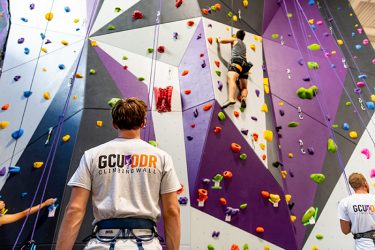
“It’s almost like you kind of catch it, like a bug,” Mack said of that excitement. “It starts with really great students that want to do really great things. If you give them the tools to do those things, it helps them be really motivated, and that really is contagious. You go to one of our events, even the Havocs – it inspires you to want to jump in and participate.”
When Koch looks back at his eight years here, he said, “The cool thing about it is, I was able to put my thumbprint on it. Some of the traditions, we got to create.”
In addition to the Thundering Heard Pep Band, he established the Thunder Big Band, the GCU Wind Ensemble and more – many of those groups organized because students said they wanted them. He also helped rewrite the school song.
Hopkins said, “Part of what has driven GCU’s success is that sense of community, and I think that’s what’s driven the basketball attendance. As we’ve continued to grow, it’s still that community and that culture that has been an attractor to people and what manifests itself at the basketball games or at any of these other events – caring for each other and serving each other and walking with each other through life.”
A decade later, Tim Griffin no longer sees students hopping in their car to drive to the other end of campus.
The University has since transitioned to being a walking-friendly campus, complete with Lopes Way. Students no longer can park in front of buildings, roadways have been converted to walking paths, and the seven parking garages exist on the periphery of campus. There also are all the hang-out spaces: the seating areas outside Kaibab and the GCBC at Roadrunner Apartments, the cool vibe of the Student Union GCBC, the Canyon Activity Center, Esports Arena and the al fresco dining on Lopes Way.
Students soak in campus life, too, at the pools, athletic facilities, bowling alley, plays and dance events, and on trips planned by Outdoor Recreation.
Some things were planned, but many grew organically and unexpectedly. Either way, it’s now a campus that’s worth the walk.
GCU senior writer Lana Sweeten-Shults can be reached at lana.sweeten-shults@gcu.edu or at 602-639-7901.
****
Related content:
GCU Magazine: Community shines through in GCU's dazzling decade

